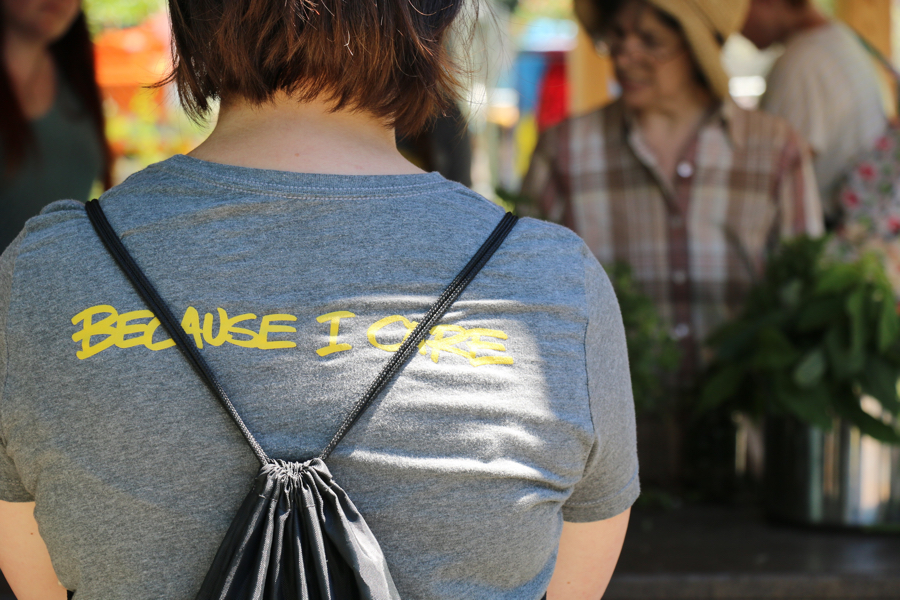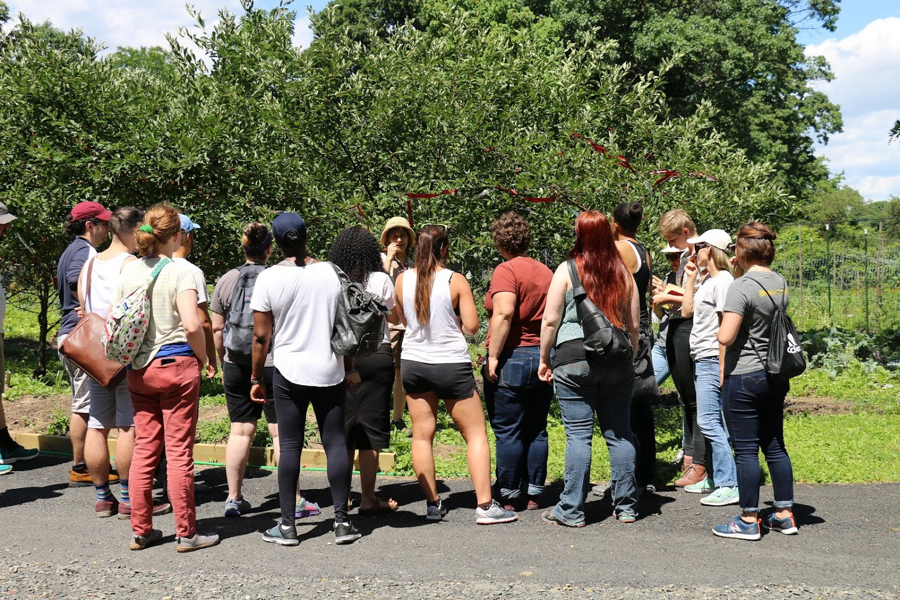Cooks Who Care Wants to Change Philly’s Restaurant Culture for the Better
Founder Maria Campbell wants cooks to know that it's okay to want more out of life than work.

Photo courtesy of Cooks Who Care
If you follow the restaurant industry — hell, if you follow current events — you know that a chef’s life can be a tough one.
Behind the beautiful food and critical acclaim are long hours, low pay, and sometimes weeks without a day off. There’s the high-stress kitchen environment, potential for injury, and a macho back-of-house culture that can be toxic, leading to abuse, harassment, addiction, and worse.
Maria Campbell wants to change that. Her Cooks Who Care project seeks to promote culture change in the industry through sharing stories, getting chefs out of the kitchen, and letting them know that it’s okay to want more from life than just a job.
And Campbell knows all about the demands of chef life: she came up in the industry, working in large-scale kitchens at hotels and country clubs, where, she says, there were more opportunities for women to advance. She did everything from pastry to banquets to butchery and met her husband, Scott, also a chef and now co-owner of Cooks Who Care, through work. Then, she spent eight years as a culinary instructor at the Art Institutes of Philadelphia, teaching students basic skills to get them career-ready.
But, as so often happens when both members of a couple work in the industry, they found that it wasn’t possible for both of them to keep their kitchen jobs and raise a kid, too.
When Campbell started talking to other chefs about the challenges of chef life — which leaves many with little to no time or energy for friendships, relationships, family, or self-care — she found that she wasn’t the only one who experienced these issues.
“We’re talking about things that make your job challenging, not the food and putting it on the plate That’s only one piece of it,” says Campbell. “It’s all this stuff that no one else sees: How hard is it for you to make friendships? What’s your biggest challenge that you’re struggling with? Whether it’s drug addiction or depression or not being with your family anymore, the separation anxiety, the divorce.”
Campbell and her husband started interviewing chefs about these challenges — the kinds of issues that are taboo to discuss on the clock — and, with permission, posting videos to Instagram. That led to other industry folk who were struggling with these challenges alone to reach out.
“I hear it every time. I thought I was the only one who went through this,” Campbell says. Chefs want to change things — to take better care of themselves and their relationships, to set boundaries between who they are and their jobs — but the constraints of the culture don’t always allow for that. Cooks Who Care gives them an opportunity to take that first step to making positive changes.
Just give Campbell two hours, she says, and she’ll show you that chefs can have lives outside of work. In addition to connecting chefs and sharing stories through social media, the project includes low-cost meetups — not industry nights at bars and restaurants, where alcohol and kitchen culture may be triggering, but out in the world.
“Every activity that we do for a hangout has to be led by somebody who’s in the business and shares that hobby themselves,” Campbell says. That proves to attendees that successful chefs can have lives, too.
Past hangouts have included a session at Urban Axes with Lily Cope, hiking in the Wissahickon with Chhaya Cafe owner Varnana Beuria, sailing on the Schuylkill with chef Chad Durkin and Liberty Sailing Club, a tasting of Baba’s Brew kombucha in Phoenixville, and family day at Little Baby’s Ice Cream. Coming up after Thanksgiving, there’s a family day at Essen Bakery and trap shooting in Delaware County with chef and consultant Eric Hall.
But it’s not all fun and games: Cooks Who Care also offers seminars on topics like starting your own business and training employees. They also provide individualized services, like leadership training, career services, and marketing to chefs looking to change the direction of their careers.
In 2018, Campbell says, Cooks Who Care is looking to grow its network with a new website and membership-based platform, connect chefs to industry mentors who can help them cultivate new skills and open up new career possibilities, and engage more leaders in the food industry to introduce their healthy hobbies to the network.
And they still want to tell stories — the kind that make industry folk realize they’re not alone.
“We consider ourselves an emotional brand,” Campbell said. “We’re really trying to be a support network for people who get it. We understand what you have to do every day, we understand that you’re exhausted, and we can actually fill up your fuel tank. We feel that our strength is in our peers, and that’s where [Cooks Who Care] is going to grow.”




